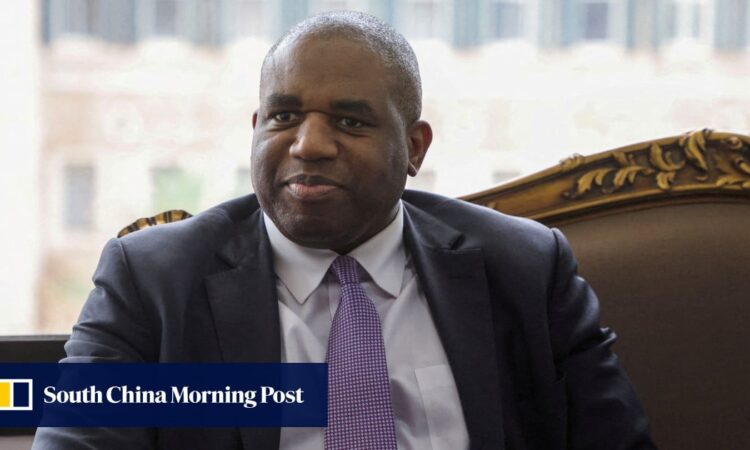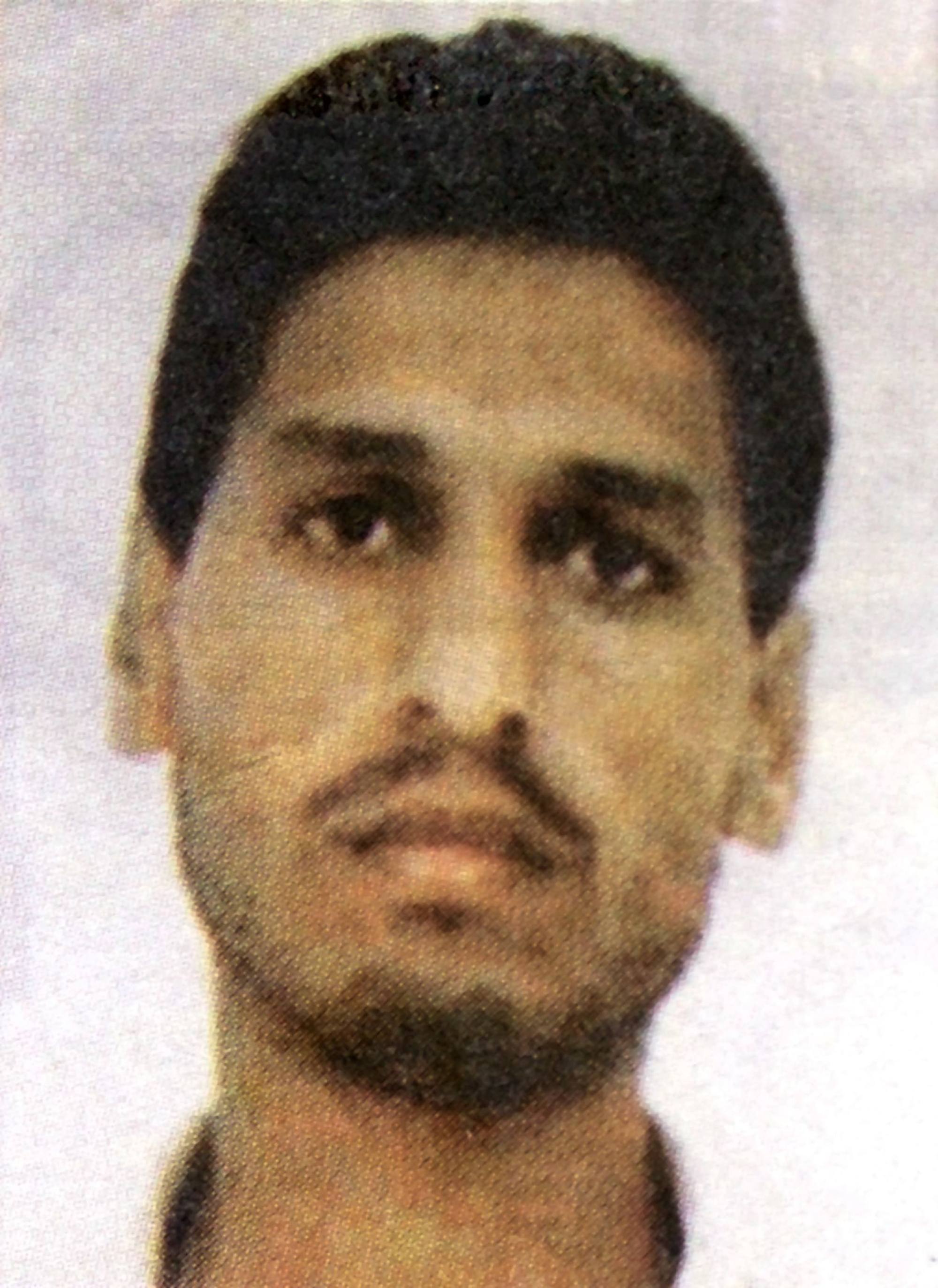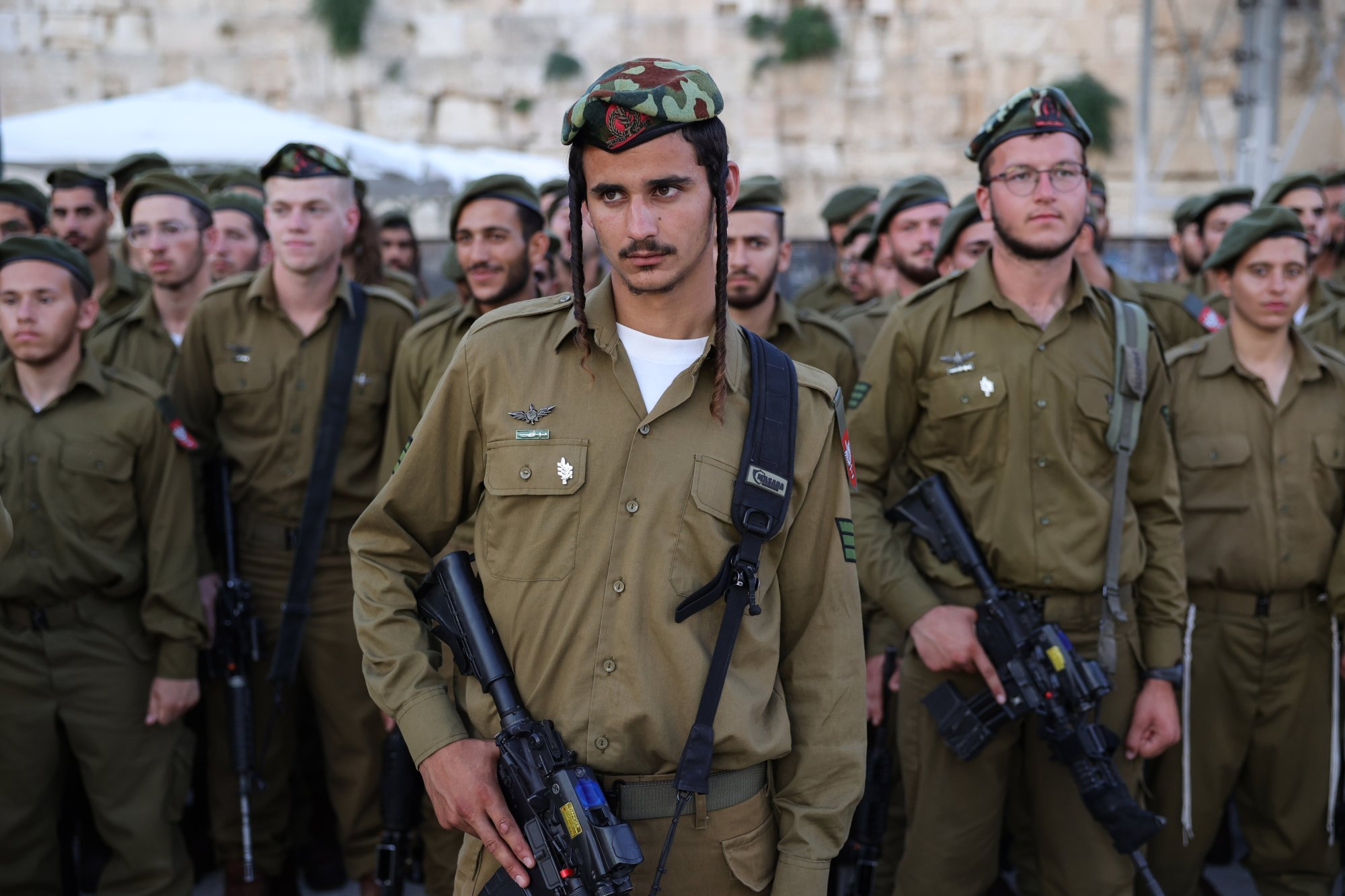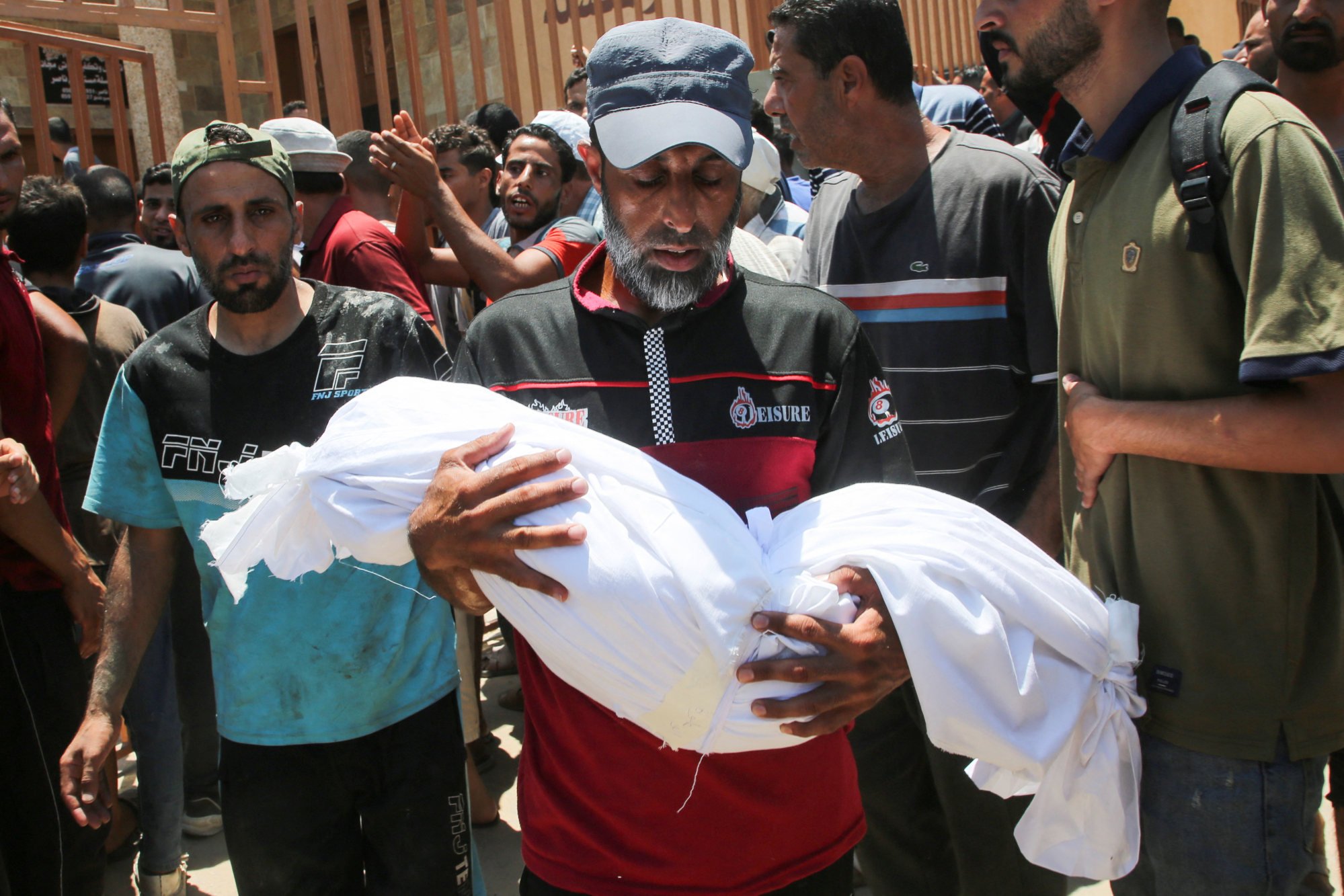
Lammy demanded Israel halt settlement expansion in the Israeli-occupied West Bank and east Jerusalem, and said the Palestinian Authority needs to be “reformed and empowered”.
Both Lammy’s Labour Party and the previous Conservative government initially avoided calling for an immediate ceasefire in the war, using phrases such as “humanitarian pause”. But the language has got stronger. Prime Minister Keir Starmer told Netanyahu last week there was a “clear and urgent need for a ceasefire”.
Labour’s stance on the Gaza war cost it votes in this month’s UK election. Although the party won in a landslide, pro-Palestinian independents defeated Labour candidates in several seats with large Muslim populations.

Top Hamas officials said on Sunday that the negotiations for a possible ceasefire deal had not been halted because of the attack. Hamas also denied that Hamas military chief Mohammed Deif, the target of the strike, was killed and said Israel’s “false claims are merely a cover-up for the scale of the horrific massacre”.
Deif and Hamas’ top official in Gaza, Yahya Sinwar, are believed by Israel to be the chief architects of the October 7 attack that killed some 1,200 people in southern Israel and kidnapped 250, triggering the Israel-Gaza war.
The Israeli military said Rafa Salama, a Hamas commander it described as one of Deif’s closest associates, was killed in Saturday’s strike. Salama had commanded Hamas’ Khan Younis brigade. Netanyahu said all of Hamas’ leaders are “marked for death” and asserted that killing them would move Hamas closer to accepting a ceasefire deal.
On Sunday, some survivors were angry that the attack targeting Deif took place without warning in an area they had been told was safe.
“I heard the first hit, and my son came screaming, ‘Daddy, daddy” and took cover with me,” said Mahmoud Abu Yaseen, who clutched his children but then woke up in hospital to find his son had died. The family had already been displaced five times since the war began. “Where do we go?” he asked.

Meanwhile, Israel’s government on Sunday approved a plan to temporarily extend compulsory military service for men to 36 months, up from 32 as the Gaza war strains manpower.
The office of Netanyahu confirmed the government had endorsed the measure, which will now go to parliament for approval.
Should it pass, the 36-month service will be effective immediately, for a period of five years, according to a copy of the bill posted online.
Because of the military’s “current needs following the events of October 7”, when Hamas triggered the war by attacking Israel, the temporary provision proposes “the maximum duration of men’s service will be 36 months”, the bill says.
The law would also apply to soldiers currently deployed, lengthening their rotations.
Increasing the burden on those serving for years, without simultaneously taking concrete actions to recruit yeshiva students and distribute the burden, will not be constitutional
In a statement posted after the government decision, however, Israel’s Attorney General Gali Baharav-Miara criticised the unequal enforcement of mandatory service, because of historic exemptions for ultra-Orthodox Jewish men.
“Increasing the burden on those serving for years, without simultaneously taking concrete actions to recruit yeshiva students and distribute the burden, will not be constitutional,” she wrote.
Most Jewish men and women in Israel must serve in the military, but since 1948 the insular ultra-Orthodox community has been granted draft exemptions so some students can continue yeshiva study.
But in late June, Israel’s Supreme Court ruled that the state must draft ultra-Orthodox Jewish men into military service, potentially destabilising Netanyahu’s coalition that includes religious and ultranationalist parties.
Ultra-Orthodox factions hold 18 of the coalition’s 64 seats.
The issue of ultra-Orthodox enlistment led to the collapse of a previous Netanyahu-led coalition government in 2018, sparking years of political deadlock.
Ultra-Orthodox Jews make up about 13 per cent of Israel’s nearly 10 million population.

On Sunday, an Israeli strike in Nuseirat in central Gaza killed at least 14 people at the gate of a school used as a shelter for displaced people, according to an Associated Press journalist who visited two hospitals. Children were among the 15 others wounded. Israel’s military in a statement said it struck “terrorists” operating in the area of a school run by the UN agency for Palestinian refugees (UNRWA).
“They are targeting everything,” said a displaced Palestinian, Um Fadi Al-Zeer.
Also on Sunday, police said a Palestinian resident of east Jerusalem carried out a car-ramming attack in central Israel that injured four Israelis, two of them seriously. Israeli border police at the scene shot dead the attacker after he hit people waiting at two bus stops along a busy road. Israel’s military said four of its solders were wounded, two of them severely.
Israeli police commissioner Kobi Shabtai said such attacks were often “triggered” by events such as Saturday’s Gaza air strike.
Additional reporting by Agence France-Presse





